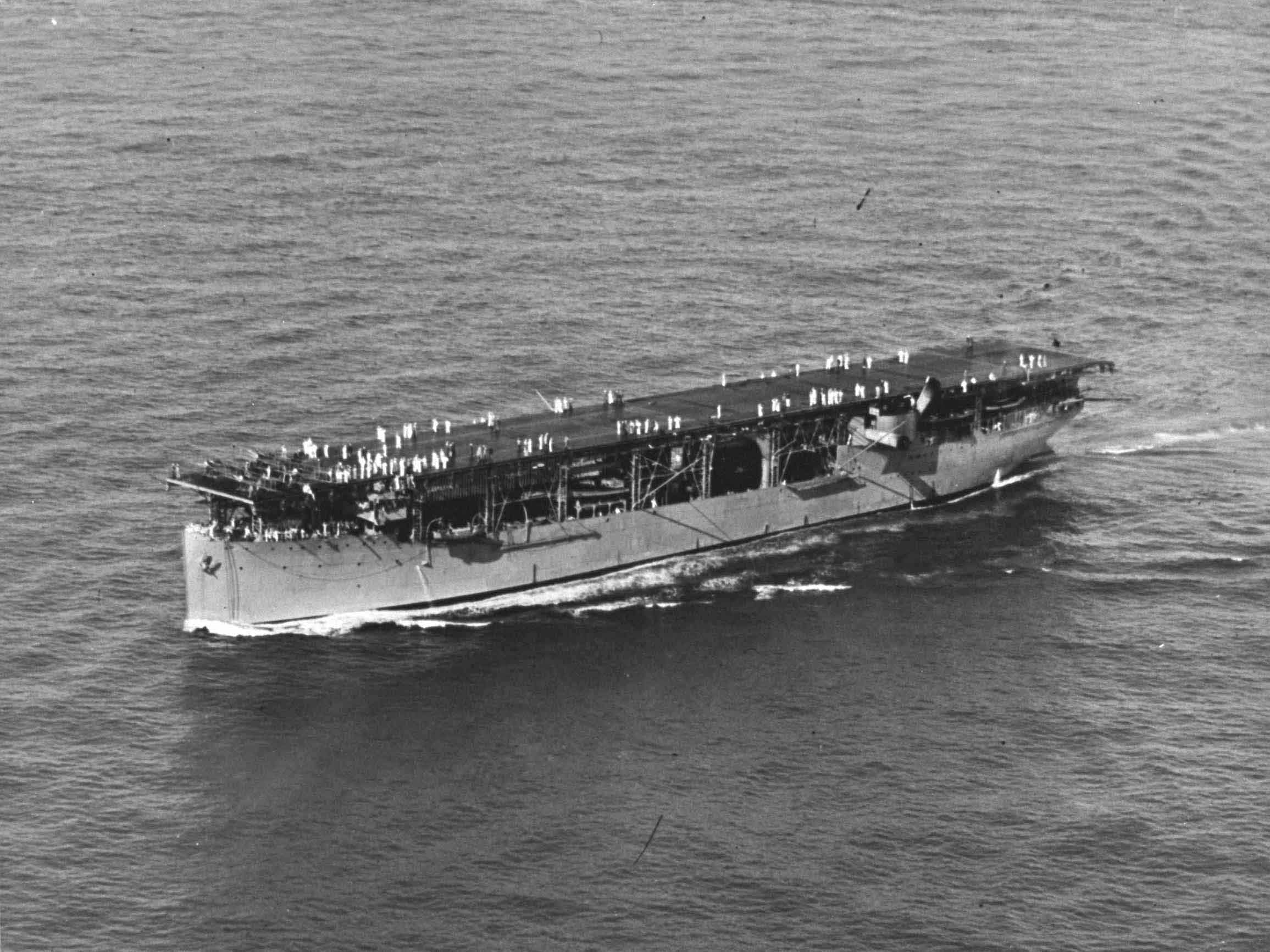1922 First US Aircraft Carrier Launched

On March 20th 1922 the USS Langley was commission in Norwalk Virginia. She was the first aircraft carrer and had been converted from a collier..
On March 20, 1922, at Norfolk, Virginia, the USS Langley (CV-1) was commissioned as the United States Navy’s first aircraft carrier. The vessel marked the beginning of a new era in naval warfare, transitioning the Navy from traditional surface combat to a focus on air power. The Langley, originally a collier named USS Jupiter (AC-3), was converted into an aircraft carrier to test the feasibility of launching and recovering aircraft at sea.
The conversion included significant modifications to the ship’s structure, including the addition of a wooden flight deck and a hangar deck for storing planes. The ship was equipped with a catapult system to launch aircraft and arresting gear to recover them safely. These innovations laid the foundation for future carrier design and tactics. Although relatively small compared to later carriers, the Langley could carry up to 34 aircraft, making it a revolutionary addition to the fleet.
As the Navy’s first dedicated aircraft carrier, the Langley became a testing ground for carrier operations and air combat techniques. Pilots practiced takeoffs and landings, pioneering skills that would become essential during World War II. The Langley’s successful operations demonstrated the strategic value of naval aviation, ultimately leading to the construction of larger and more advanced carriers.
The commissioning of the USS Langley symbolized the Navy’s recognition of aviation as a critical component of modern warfare. It also marked a significant step in the evolution of carrier-based operations, which would later dominate naval strategy in conflicts such as the Pacific Theater during World War II. Though decommissioned in 1937 and later sunk during World War II, the Langley’s legacy endures as the ship that introduced aircraft carriers to the U.S. Navy and reshaped maritime warfare forever.
 >
>